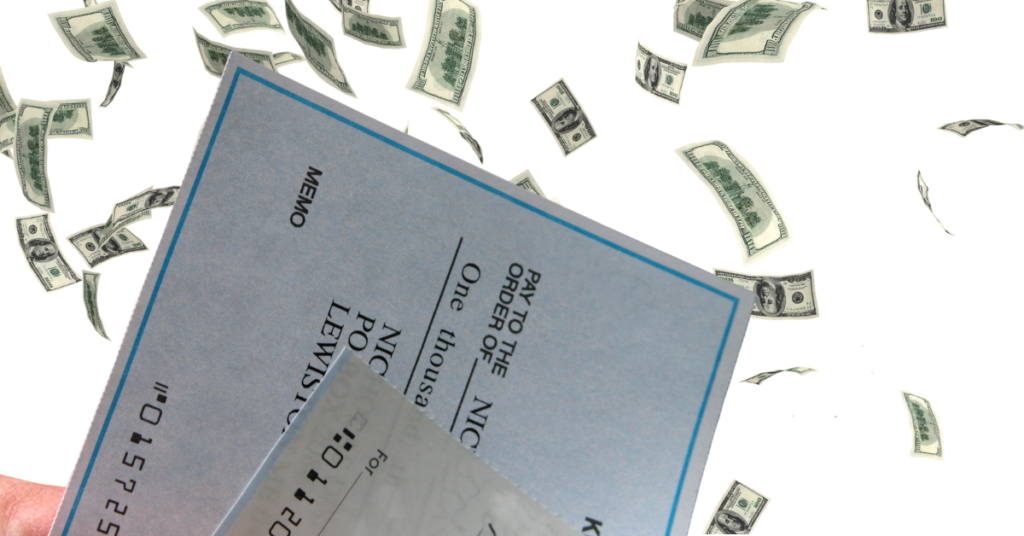“$12000 stimulus checks” have been making headlines recently, raising questions about eligibility and availability. As financial uncertainties continue, many are eager to learn if they qualify for this generous aid. This article dives deep into everything you need to know about these $12000 stimulus checks, including who qualifies, when they may be received, and how to claim them.
Navigating the complexities of stimulus payments can be overwhelming. Understanding the details is crucial to ensure you don’t miss out on potential support. Whether you’re wondering if this financial relief applies to you or seeking guidance on how to secure these funds, we’ve got you covered.
What Are the $12000 Stimulus Checks?
The “$12000 stimulus checks” are financial relief payments designed to help people in tough economic times. These checks are part of an effort to provide significant support to those in need, especially during periods of high unemployment or economic downturns. Unlike smaller aid packages, this amount is meant to cover substantial expenses, giving recipients a meaningful boost.
The main goal is to help families and individuals struggling to meet basic needs. Whether it’s paying rent, buying groceries, or covering medical bills, the $12000 stimulus check can make a big difference. Understanding the nature of these checks helps you see how this aid fits into broader financial support efforts.
These checks are often targeted at specific groups, including low-income families, unemployed individuals, and those facing severe financial difficulties. Governments and agencies design these checks to bridge financial gaps, ensuring that basic needs are met during challenging times.
Eligibility Criteria for the $12000 Stimulus Checks
Eligibility for the “$12000 stimulus checks” is determined by specific criteria, mainly focusing on income levels, employment status, and family size. Those with lower incomes, the unemployed, and families experiencing significant financial challenges are most likely to qualify. Meeting these criteria is crucial for receiving the checks.
Income is a significant factor; individuals or families earning below a certain threshold are typically prioritized. Additionally, factors like dependents, recent job loss, and other financial hardships can influence eligibility. Always keep updated with the latest criteria as guidelines often change, and missing an update could mean missing out on potential aid.
Verification of your eligibility often involves submitting recent financial records, tax documents, and personal identification. It’s essential to be precise and thorough in providing this information. Incorrect or incomplete submissions can lead to delays or disqualification, so paying close attention to requirements is crucial.
How to Apply for the $12000 Stimulus Checks
Applying for the “$12000 stimulus checks” involves several key steps that are easy to follow if done carefully. First, ensure that you have all required documents, such as tax returns, proof of income, and identification details. This paperwork is essential for verifying your eligibility and expediting the approval process.
Next, head to the official website or authorized platform designated for applications. These sites will guide you through the steps, from entering personal information to uploading necessary documents. Be sure to double-check each entry to avoid mistakes that could delay your application.
After submitting, monitor your application status regularly. Most platforms provide updates on processing times and any additional actions required on your part. Staying on top of your application status ensures you respond quickly to any issues, helping you get your check faster.
Payment Dates and Timelines for the $12000 Stimulus Checks
Many recipients are eager to know when the “$12000 stimulus checks” will arrive after approval. Typically, the distribution of these checks happens in phases, depending on when your application was processed and approved. Most eligible recipients can expect to receive their checks within a few weeks to a couple of months.
The exact timing can vary based on factors such as application volume, verification times, and postal or banking delays. To keep track, regularly check official announcements and updates regarding the payment schedule. Understanding these timelines helps you plan your finances effectively, avoiding unnecessary stress while you wait.
It’s important to be patient, as high demand and processing issues can cause delays. Keeping a record of your application details and staying informed about any updates will help you manage expectations regarding when the funds will be available.
Understanding the Tax Implications of the $12000 Stimulus Checks
The “$12000 stimulus checks” are generally considered non-taxable, meaning you do not need to pay income tax on the amount received. This is a major relief for recipients, as it ensures that the full benefit can be used without worrying about tax deductions. However, it’s important to report the receipt of the check accurately in your tax filings to avoid any issues.
The stimulus checks do not affect your eligibility for other government aid or benefits. It’s crucial to stay informed about any changes in tax laws that might affect future payments. If you have specific questions, consulting with a tax advisor can provide personalized guidance.
Potential Impacts of the $12000 Stimulus Checks on Your Finances
The “$12000 stimulus checks” can have a significant positive impact on personal finances. For many, this financial boost means catching up on overdue bills, avoiding debt, and securing basic needs. The direct cash injection is designed to provide immediate relief, especially for those facing economic hardships.
While the primary goal is to support struggling households, it’s also an opportunity to stabilize finances. Using the funds wisely, such as paying down high-interest debt or setting aside emergency savings, can provide long-term financial stability beyond the immediate relief.
It’s important to be cautious with spending. Planning and budgeting the funds carefully ensures the check truly benefits your financial health. Avoid using the money on non-essential items and focus on your immediate needs first.
You can Also Discover: Are Veitnamese Happy?
What to Do If You Haven’t Received Yours
If you haven’t received your “$12000 stimulus check,” the first step is to verify your application status. Check if your application was completed correctly, as missing or incorrect information can cause delays. Most platforms have tools to track your application progress and provide updates on any issues.
Sometimes, delays happen due to processing backlogs or verification issues. It’s essential to remain patient but proactive. If your check is significantly delayed, contact the relevant authorities or customer service for assistance. Keeping all your documents ready will speed up the resolution process.
Ensure that your banking and address details are up-to-date. Outdated information can cause further delays, leading to missed payments. Regularly checking and updating your records can prevent unnecessary waiting times.
How to Track Your $12000 Stimulus Check
- Visit the Official Website: Go to the official website or platform where you applied for the stimulus check.
- Use the “Check Your Status” Feature: Look for the option labeled “Check Your Status” or something similar.
- Enter Your Information: You may need to input your application number, social security number, or other identification details.
- Review the Status: The tool will show the progress of your check and any issues causing delays.
- Stay Updated: Regularly check for updates to know when your payment will arrive.
Common Mistakes to Avoid When Applying for the $12000 Stimulus Checks
- Incomplete Applications: Not filling out all required fields can cause delays or disqualification. Double-check your application before submitting.
- Incorrect Information: Providing wrong details, like a misspelled name or wrong bank account number, can lead to application rejection or delayed payments.
- Missing Documents: Forgetting to upload necessary documents, such as tax returns or proof of income, can slow down the approval process.
- Not Checking Status Regularly: Failing to track your application can cause you to miss important updates or required actions.
- Using Unofficial Websites: Applying through non-official platforms can result in scams or incorrect submissions. Always use trusted, official sites.
Navigating Financial Relief
While the “$12000 stimulus checks” offer substantial relief, they are not the only financial support available. Various programs provide additional assistance, such as unemployment benefits, food aid, and rental support, each targeting specific needs.
Exploring these other aid options can help supplement the stimulus checks, especially if your financial needs are greater. Many local and national programs are designed to assist with rent, utilities, and food, providing a more comprehensive support system.
Applying for multiple assistance programs can maximize the relief you receive. Each program has its criteria, so research which ones you qualify for. This approach ensures you are fully supported, addressing all aspects of your financial challenges during tough times.
Common Questions About the $12000 Stimulus Checks Answered
Many questions arise around the “$12000 stimulus checks,” such as eligibility, application process, and timelines. One common question is whether you need to pay taxes on the checks. Typically, these payments are considered non-taxable income, providing full financial relief without additional tax burdens.
People also wonder if receiving a check affects other benefits. The good news is that stimulus checks usually do not interfere with unemployment benefits, food stamps, or other government aid. Understanding these aspects helps recipients maximize the aid without unexpected surprises.
Queries about how to track the status of checks are common. Most official sites offer tracking tools where you can check your application status and expected payment date. This feature helps in managing expectations and financial planning effectively.
Conclusion
The “$12000 stimulus checks” are a big help for many people facing tough financial times. They provide immediate relief, helping families pay bills, buy essentials, and get back on track. Understanding how to apply, who qualifies, and what to do if you haven’t received your check is crucial for making the most of this support.
Remember, the stimulus checks are just one form of assistance. Exploring other financial aid options can further ease your money worries. Stay informed, follow the right steps, and use the support wisely to improve your financial situation.







